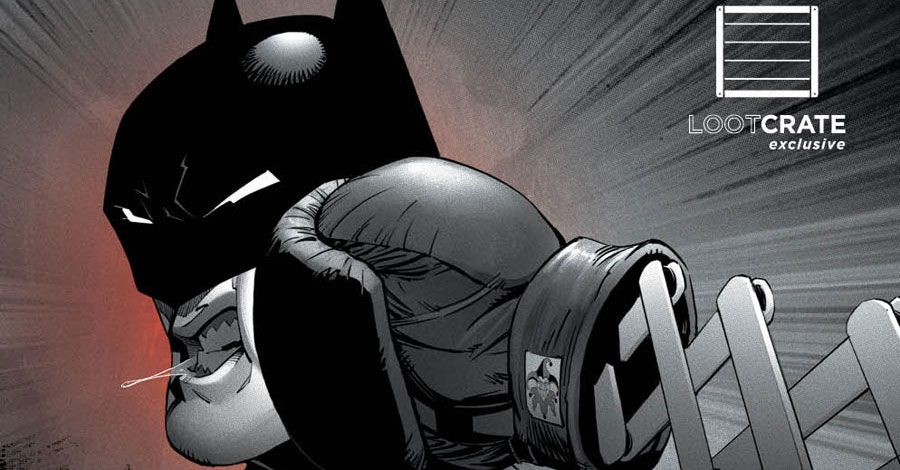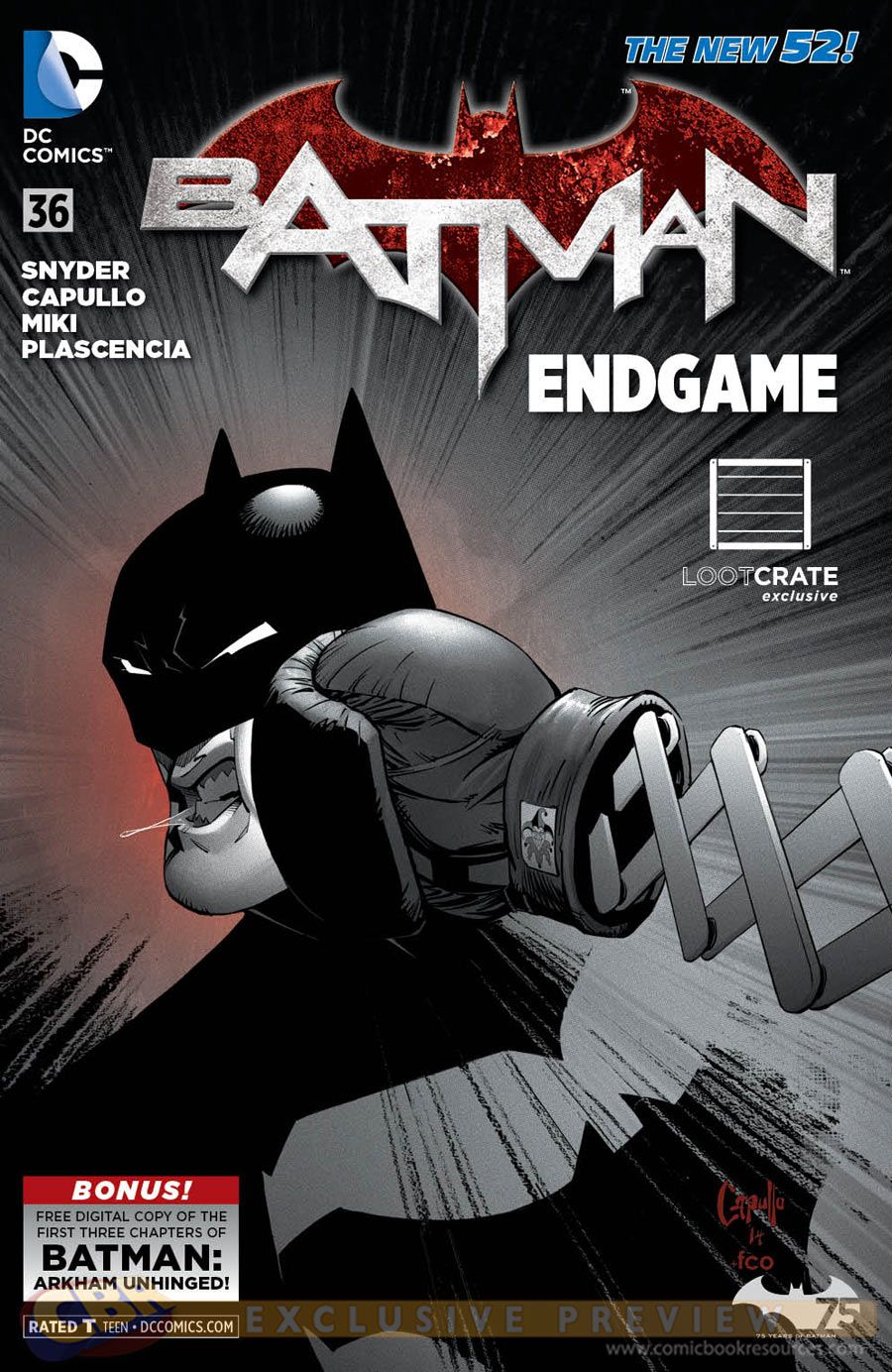There was no clear cut winner for the top comics publisher in December 2014. The total unit sales for the top 300 comics were only slightly above average and only about 23,808 units above the total aggregate sales for November. DC Comics accounted for 39.6% of the top comic sales, and Marvel accounted for 38.09%. A difference of 1.51% of the total sales for the top 300 comics, while larger than any publishers in the back half of Previews other than Dynamite Entertainment and BOOM! Studios, is hard to consider a commanding lead in sales. In terms of dollars for the top 300 comics, Marvel accounted for 41.63% while DC accounted for 36.4%. Marvel brought in more dollars but did so with an average price of $4.07 compared to the $3.35 average price for DC.
The reality of the situation is Marvel is ten times more likely than DC to have the most units sold in a given month and averages a lead a hair over 11%, while DC averages a lead of around 6.36% on the rare occasions it sells more than Marvel. On the top trades list, DC tends to outsell Marvel about 68% of the time, but the lead on the trades list is usually averages out around 21,500 units regardless of which publisher had the most sales.
Only two items sold over 100,000 units in December, which is not a great sign, particularly given only two other sold over 73,000 units. Even more interesting is that "Batman" #36 was in the December Loot Crate, but there is no sign of those units on the list, even though it most likely would have charted as the top-selling comic for the month. Presumably the deal was somehow worked in a way which didn't involve Diamond, which is surprising since Diamond is the sales agent for DC. Personally, I feel any units moved through promotional means such as Loot Crate shouldn't be on these charts. That having been said, it would have only taken another 101,801 units for DC to have taken the lead in December and at least that many units were likely involved in the Loot Crate deal.
DC's annuals in December were down from 19.99% for "Batman" to 43.92% for "Red Hood and the Outlaws" compared to the previous annual. The "Godhead" storyline resulted in a 20.44% bump on "Infinity Man and the Forever People" #6, but even with that bump, the issue only sold 11,261 units. "Klarion" #3 dropped another 26.26% from the second issue putting the series around 8,418 units. As of the December issues (excluding annuals), the lowest selling New 52 titles are "Constantine" #20 at 15,574 units, "Justice League 3000" #12 with 18,659 units and "Red Hood and the Outlaws" #37 with 18,723 units.
"Shaft" #1 topped the list for Dynamite Entertainment with 12,430 units. "Django/Zorro" #2 dropped 28.88% to 11,001 units and "John Carter Warlord" #2 dropped 44.39% to 8,858 units. Only two Dynamite Entertainment title had issue numbers in the double digits. "Game of Thrones" #23 sold around 6,120 units and "Twilight Zone" #10 moved an estimated 5,680 units. Having very few ongoing titles in the double digit issue numbers isn't inherently problematic, but it does point to the trend of transient sales due to the rotating of titles over time. Obviously, that trend is by no means unique to Dynamite Entertainment as other publishers such as Valiant and Marvel also routinely replace titles with either new volumes or new titles on a regular basis. The trend does provide readers with plenty of jumping off points and requires the publisher to routinely invest marketing effort in convincing readers to try out the new titles.
The top selling title for IDW was "My Little Pony: Friendship is Magic" #26 with 17,454 units. Not far behind it was "Star Trek/Planet of the Apes" #1 with 17,307 units. Most of the IDW titles these days are kids/all-ages properties, licensed properties or both. IDW still has some properties which they have brought to market, and the licensed properties are from a number different sources giving them a fairly diverse and stable line of titles.
Image is always interesting to look at since they operate in a fundamentally different way than the other publishers. Image owns no properties and creators come to them to get their properties published. Most other publishers either seek out creators to work on house properties or are geared toward publishing the work of a particular creator or are some combination of the two. The unique business model for Image, or more properly the Image Central line within Image, yields a line of titles which is both diverse and ever changing. Only two Image titles sold over 40,000 units: "The Walking Dead" #135 with 67,361 units and "Wytches" #3 with 43,240 units. A couple of titles had some major second issue drops, such as "Intersect" #2 which lost 59.34% of the first issue sales landing at 7,437 units, and "Humans" #2 which lost 58.71% dropping to 7,132 units. "Drifter" #2 lost as close to exactly half of the first issue sales as possible for a title which started with an uneven number of units going from the first issue sales of 20,887 units down to 10,433 units, losing the other 10,444 units. Second issue drops reflect retailer expectations more than reader reactions and drops are expected but drops of 50% or more of the first issue sales are never a good sign.
Marvel only had two titles over 73,000 units. "Amazing Spider-Man #11 was part of the Spider-Verse story arc and increased 3.81% to 104,739 units. "S.H.I.E.L.D." #1 which features the comic book versions of some of the characters from the "Marvel's Agents of S.H.I.E.L.D." television series launched with 94,503 units which is strong considering none of the lead characters are super-heroes. "Avengers and X-Men: Axis" ended under 70,000 with a negligible upward blip in sales of 0.1% on the final issue. "All New Captain America" #2 lost 58.44% of the first issue sales ending up at 50,077 units. "Inhumans" #9 dropped by 24,804 units landing at 25,962 units. While that might seem like a drop of around half the sales, and it is down 48.86% from the previous issue, the previous issue featured Black Bolt and Maximus and was the second best-selling issue. This wasn't the loss of sales the title had been sustaining. The title was returning to the norm after a single issue spike in sales.
Titan Comics had two kinds of titles in December: "Doctor Who" titles, which average around 13,976 units an issue, and non-"Doctor Who" titles averaging 2,639 units. The Tenth, Eleventh and Twelfth Doctors each have an ongoing series, and a miniseries featuring the Ninth Doctor is on the way. Given the success they are having with "Doctor Who," it wouldn't be surprising to see a "Torchwood" title before too long.
Zenescope only had a single title in the top 300 comics, with "Grimm Fairy Tales" #105 selling around 5,166 units, but they placed another 10 items below rank 300 which were on the top 50 small press comics list. All but one of those items were "Grimm Fairy Tales" miniseries of one flavor or another. With DC and Marvel accounting for around 80% of the top 300 comics sales and the other premiere publishers taking another 15% or more, it is easy to lose sight of the other publishers on the top 300 comics list and all of the ones that fall beneath the radar of that list.
If you'd like to listen to an in-depth discussion of the sales data, check out the Mayo Report episodes of the Comic Book Page podcast at www.ComicBookPage.com. In addition to those episodes, every Monday is a Weekly Comics Spotlight episode featuring a comic by DC, a comic by Marvel and a comic by some other publisher. Once a month is the Previews Spotlight episode which features clips from various comic book fans talking about the comics they love. With thousands of comics in Previews every month, Previews Spotlight episodes are a great way to find out about things which may have flown under your comic book radar.


